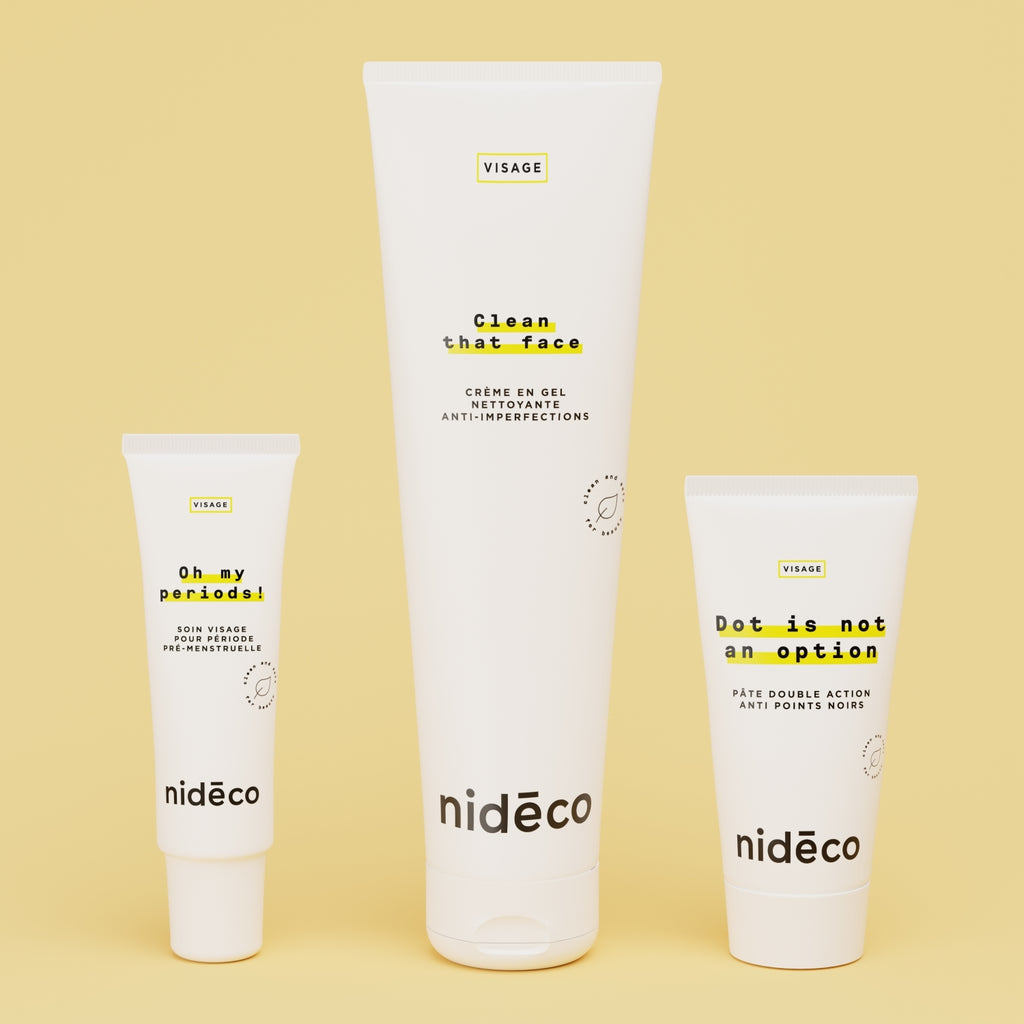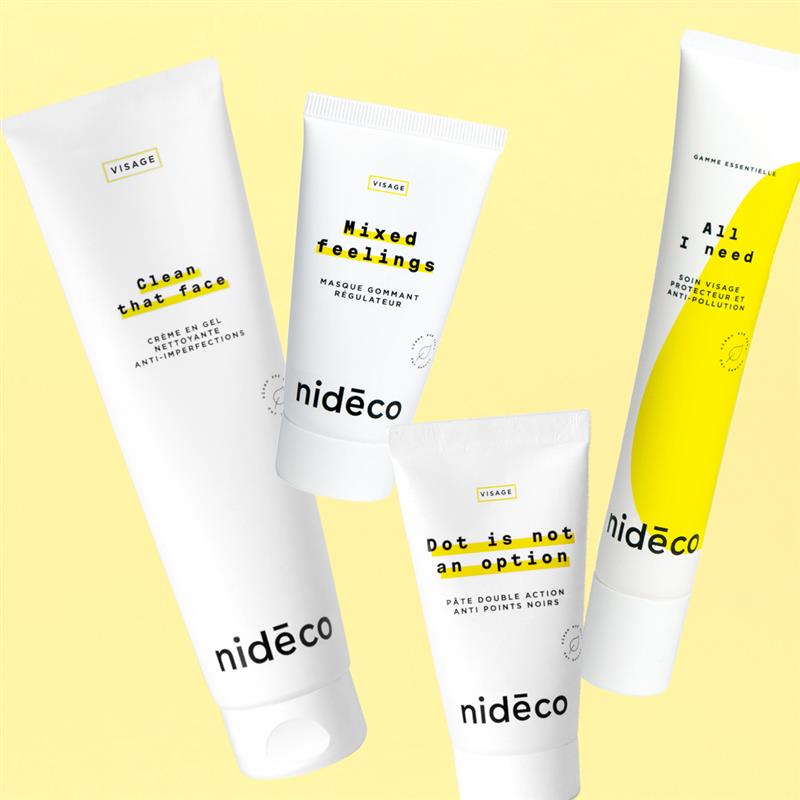Sweating: Where does it come from and how can it be regulated?

🧐 Essential for regulating our body temperature, perspiration moistens the surface of the skin, evaporating through our pores to lower body temperature. It's a totally natural and essential mechanism for maintaining a constant temperature of 37°C. But where exactly does it come from, and how can we regulate perspiration effectively? We explain it all!
Why do we sweat?
Thermal control
👉 Sweating is a key process in maintaining our body temperature. When it's hot or we're exercising, our bodies produce sweat through the eccrine sweat glands. This sweat evaporates on the surface of the skin, helping to cool the body and maintain a stable temperature of 37°C.
Detoxification
As well as regulating temperature, perspiration plays a role in detoxification. By sweating, we eliminate waste products and toxins from our metabolism. This process contributes to clearer, brighter skin, as it helps reduce blackheads and acne.
Skin protection
💚 Perspiration, like sebum, contributes to the formation of the hydrolipidic film that protects our epidermis from external aggression. This film is essential for maintaining a healthy skin barrier and preventing infection and irritation.
Why does perspiration smell?
The unpleasant odours associated with perspiration come from the breakdown of bacteria on the skin's surface. Apocrine sweat glands, located mainly under the armpits and in the groin, secrete protein- and lipid-rich sweat. These molecules are broken down by the bacteria present on our skin, producing the odor compounds responsible for unpleasant odors.
Emotional perspiration
😡 There's also emotional sweating, triggered by strong emotions such as stress, fear or anger. This sweat, often produced by apocrine glands, occurs mainly on the hands, feet and armpits, and tends to have a more pronounced odor.
How to regulate perspiration?
1. Daily hygiene
🧖♀️ Washing and drying armpits daily is essential to prevent the proliferation of bacteria. Good hygiene reduces the risk of unpleasant odors and irritation.
2. Moisturize underarm skin
Underarm skin is particularly stressed by perspiration, hair removal and rubbing. Proper moisturizing is crucial to avoid dryness, redness, hyperpigmentation and itching.
3. Wear clothes made from natural fibres
👍 Favoring clothes made from natural fibers, which let the skin breathe, helps prevent moisture from reaching the skin's surface. Cotton, linen and other natural fibers are excellent for promoting good ventilation and reducing the risk of irritation.
4. Use natural deodorants
Natural deodorants are preferable to antiperspirants, which can irritate the skin and block the sweating process needed to regulate body temperature. A good natural deodorant neutralizes unpleasant odors while allowing the skin to breathe.
Discover "Rush Hour": the multi-purpose deodorant
😍 Inspired by his day-to-day life, Anöuk thought up Rush Houra multifunctional deodorant. It absorbs excess perspiration, prevents unpleasant odors, moisturizes the skin and prevents ingrown hairs. And BIG NEWS: its creamy texture penetrates quickly, leaving no residue on clothing. The results? A sensation of freshness upon application, leaving skin soft and protected by a clean beauty formulation. Of course, this deodorant can also be applied to the feet for an anti-odour action and soft feet!
Tips for preventing excessive perspiration
1. Drink enough water
🚰 Sweating leads to a significant loss of water, particularly during a sports session or in hot weather. It's crucial to stay well hydrated to compensate for this loss and maintain your body's water balance.
2. Use appropriate after-sport care products
🥰 After a sports session, skin needs to be rehydrated. Fit & Fabulousa practical, nomadic face mist co-created with Lucie, is the perfect after-sports facial. This mist immediately revitalizes and mattifies the skin, even after a heavy workout!
3. Taking care of your skin
Polysaccharides, sugars derived from plants such as corn, present in Fit & Fabulousplay a soothing, moisturizing role. They have restructuring properties and create an adherent biofilm that protects skin from dehydration by retaining water.
A few more tips
1. Avoid spicy foods and caffeine
🍎 Certain foods and beverages can increase sweating. Avoiding spicy foods and caffeine can help reduce sweat production.
2. Managing stress
💪 Stress can trigger excessive sweating. Practicing relaxation techniques such as meditation, yoga or breathing exercises can help better manage stress and reduce emotional sweating.
3. Choosing the right care products
Using skincare products tailored to your skin type and specific needs can make a big difference. Products that moisturize and soothe the skin while regulating perspiration are ideal for maintaining healthy, comfortable skin.
Conclusion
👉 Perspiration is a natural and essential process for regulating our body temperature, detoxifying our organism and protecting our skin. Although it can sometimes be embarrassing, there are many ways to regulate it effectively. By adopting good hygiene, using the right skincare products and choosing the right clothes, you can keep your skin fresh, soft and odor-free. Don't forget to keep well hydrated, especially after intense physical activity, to compensate for water loss due to perspiration. With these tips and innovative products like Rush Hour and Fit & Fabulousyou'll be ready to face any day with confidence and freshness!


























